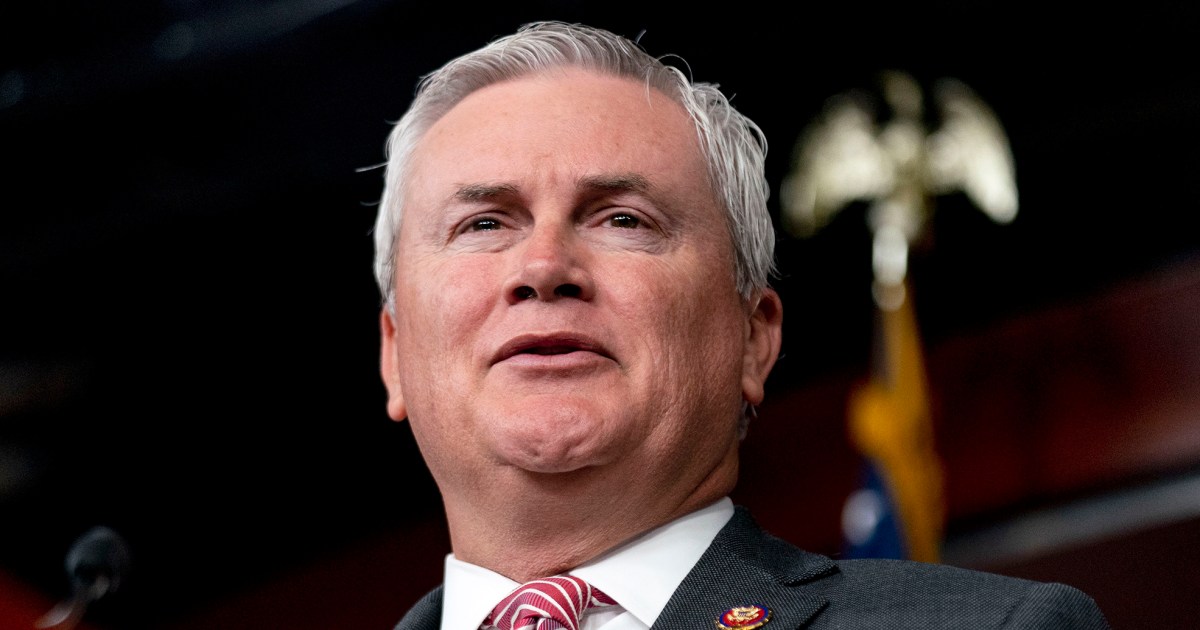Toronto and the corridor that stretches west to Kitchener and Waterloo is already Canada’s capital of finance and technology—and naturally, the region’s leaders want to set an example for the rest of the world. That’s part of the reason why in 2017, municipal organizations in Toronto tapped Google’s sister company Sidewalk Labs to redevelop a disused waterfront industrial district as a high-tech prototype for the “smarter, greener, more inclusive cities” of tomorrow. But within three years the deal had collapsed, a victim of conflicting visions, public concerns over privacy and surveillance, and (to hear Sidewalk Labs tell it) pandemic-era economic change.
Journalist Brian Barth, who trained in urban planning and spent seven years living and working in Toronto before returning to the US this summer, says the Sidewalk fiasco also symbolizes a larger difference: the contrast between Silicon Valley’s hard-charging, individualist, libertarian ethos and a Canadian business style that emphasizes collaboration, respect, and social responsibility. In this edition of Deep Tech, Barth talks about the tensions that led to Sidewalk Labs’ departure and the strategies Canadian CEOs are following to build a more open and inclusive tech sector.
Show Notes and Links
Toronto would like to be seen as the nice person’s Silicon Valley, if that’s not too much trouble, June 17, 2020
Activists are suing Canada over plans to build a smart city in Toronto, April 18, 2019
Toronto is the center of new technology jobs in North America, July 24, 2018
Facebook heads to Canada for next big AI breakthrough, September 17, 2017
Full Episode Transcript
Wade Roush: Is Toronto like Silicon Valley for nice people?
Brian Barth: Is this just a nice idea, that Canadian business people are not as cutthroat, or is there really truth to that?
Wade Roush: On the surface, US culture and Canadian culture can look almost identical. But in the July issue of Technology Review, journalist Brian Barth takes a look at the subtle differences in outlook that may explain why Canadian tech companies are a little less aggressive and a little more humane than their Silicon Valley counterparts.
Brian Barth: And people generally felt that there was truth to that. Some people felt that they wished Canadian business people could be more cutthroat, so they’d be more successful.
Wade Roush: Today on the show, a look at Canadian values and how they’ve led Canadian tech companies down a very different path. I’m Wade Roush, and this is Deep Tech.
[Deep Tech theme]
Wade Roush: What kind of stamp do national culture and national character put on innovation and entrepreneurship? Canada has a reputation as an emerging leader in artificial intelligence and quantum computing. And yet the country hasn’t produced a Facebook or a Google with visions of conquering the world through technology. That just doesn’t seem to be the Canadian way. And in fact, when American tech companies like Google do try to export US-style innovation to Canada, the culture clash can be severe.
Brian Barth is an American journalist who spent years living and writing in Toronto. His feature article in the July issue of Technology Review is called “Enter the Narwhal,” and it’s built around a thought experiment. If Silicon Valley had evolved in Canada rather than California, what kinds of tech companies and products would be coming out of it now?
Wade Roush: So let’s talk about Sidewalk Labs, because that whole story seems somewhat emblematic to me of the differences between how business and entrepreneurship and innovation work in Canada as compared to the US. Tell us what Sidewalk Labs was supposed to be in the first place.
Brian Barth: Yes. So it’s a New York-based company founded in 2015 with the idea of integrating more technology into urban systems. Essentially the ultimate IoT company, right, because it’s about bringing technology not just into your home and your stuff, but into public space, buildings, sidewalks, trashcans, streetlights, roads, bridges, governance as well.
Wade Roush: Brian explains that in 2017 an agency called Waterfront Toronto selected Sidewalk Labs, which is a subsidiary of Google’s parent company Alphabet, to take a 12-acre industrial district called Quayside and redevelop it as a kind of high-tech city of the future.
Brian Barth: They pulled out all the bells and whistles. So there is this huge press event to make the announcement with the prime minister, the premier of Ontario, the mayor of Toronto. VIP is from Google. They cast it as, this is the most ambitious, smart city project that has ever been undertaken.
Justin Trudeau [from a video recording of the 2017 Sidewalk Labs announcement]: Thank you very much. I’m pleased to announce that Waterfront Toronto has found an extremely promising partner in Sidewalk Labs, a world leader in urban innovation. Sidewalk Labs will create a testbed for new technologies in Quayside. Technologies that will help us build smarter, greener, more inclusive cities, which we hope to see scaled across Toronto’s eastern waterfront and eventually in other parts of Canada and around the world.
Brian Barth: They had all these just incredible renderings and ideas of so many different technologies from things like pavement that is embedded with LED lights instead of lane markings, and so you can kind of modulate the lane markings to adjust for traffic flow in real time in coordination with autonomous vehicle technology. All sorts of fancy systems to deliver things. Rather than delivery trucks clogging up the streets, it’s all gonna be underground in these tunnels with robots. And then there’s going to be other robots that haul away trash and recycling in those same tunnels. They had this very far out thing about what they called building raincoats, which were kind of like these big umbrellas, like clear, I guess, plastic structures that could spring out from a building depending on the weather, in order to make the space around the building more habitable in snow and rain.
Wade Roush: And it sounds like this was a genuine Kumbaya moment, like, there was enthusiasm and excitement on both sides, for a while anyway. And then the welcome mat at some point got pulled out from underneath Sidewalk, right?
Brian Barth: Yeah, it started, I would say, the very minute that Justin Trudeau took the stage and made this announcement, because there were already people in the community that were hip to this issue and critical of the tech industry’s privacy practices and that sort of thing and ethics in general. So that community in Toronto was immediately galvanized. They were already focused on these issues, but suddenly they have this elephant in their backyard.
Wade Roush: The elephant, of course, was Sidewalk’s relationship to Alphabet and Google, a company that built a trillion-dollar business by hoovering up data about user behavior for use in its targeted advertising programs.
Brian Barth: And very quickly, it was like, oh, here’s this epic David and Goliath good-evil debate that we in the media love, for better or worse. And the narrative around it just shifted, I would say, like a night and day shift from being this amazing thing that we have to have, to being this thing that we have to really think hard about and is probably just full of pitfalls and maybe we never should have gotten involved in this.
Wade Roush: And then how did it all ultimately fall apart?
Brian Barth: So Waterfront Toronto faced so much criticism and they were basically forced to kind of put Sidewalk Labs on a really short leash. Like, the original agreement was like, here’s the key to the city. Do whatever you want, essentially. And they just step by step, put restrictions and constraints on what Sidewalk Labs could do. The city is going to get, sort of, royalties from any IP that’s developed. The government is going to control how data is collected and used. And a whole list of things like that, to the point where Sidewalk Labs started saying, “Well, can we even make this work economically? Because we need a certain scale to deploy some of these technologies. Otherwise it’s not going to work for us.” And then in May, Sidewalk Labs quite abruptly said “We’re out.” They said the economics weren’t working, especially in light of the pandemic, and they needed to pull out.
Wade Roush: I asked Brian whether he thinks the collapse of the Sidewalk Labs deal can be chalked up to a cultural mismatch between an American tech giant and the leaders of Canada’s largest city.
Brian Barth: Many, many people have said some version of this to me, that they didn’t realize how American they were in their approach, which is to say that they didn’t realize how aggressive and not-listening and not-perceptive they were. And this kind of American exceptionalism that “We’re Google. We’re the most amazing thing since sliced bread. And of course, you want this. Like, how could you not just take everything that we’re saying at face value and eat it up?” That just became more and more present in the air as time went on, to the point where all those people who originally kind of welcomed them got their hackles up more and more. Not necessarily because they were worried about privacy and surveillance, all these things activists were talking about, but more because they were dealing with Google or dealing with Sidewalk Labs and feeling like there wasn’t a respect or understanding that the local government might assert itself on behalf of what its population was asking for.
Wade Roush: So, Brian, you wrote in the piece that some entrepreneurs, at least, are drawn to Canada by its image as, I’m going to quote you here, “A liberal utopia where diversity, inclusion and humility triumph over greed and bigotry,” unquote. And there’s something in there that corresponds to Canadians’ real perceptions of Americans, I think. And almost everyone you quote in your story seems to believe in one way or another that Canadian values are different from American values and that that manifests itself in entrepreneurship and innovation in very important ways. So I want to ask you to summarize the feelings you were running into among Canadians.
Brian Barth: You know, some people call that Canadian exceptionalism, this idea that Canada is so much more enlightened than the US. And some people also would say that’s a load of B.S. that Canada has just as many issues around inequality and racism as the US. And there is truth to both of those points of view, I think. That manifests itself in business in general with an absence of the libertarian ethos around corporate culture. There is a very prominent strain in the American business community that is profoundly antithetical to government regulation. The less the better. And that strain is much less present in Canada. So I then ended up interviewing a bunch of tech CEOs. And I asked them that question that you just asked me, you know, is there a difference? What’s the difference? Like, is this just a nice idea, that Canadian business people are not as cutthroat, or is there really truth to that? And people generally felt that there was truth to that. Some people felt that they wished Canadian business people could be more cutthroat, so they’d be more successful. So there is a range of reactions. But the more I probed that question, the more it did seem to come down to culture. That Canadian families, the Canadian educational system, Canadian society, doesn’t tend to produce that iconic Silicon Valley libertarian founder that the US has produced so many of.
Wade Roush: The headline on your story is “Enter the Narwhal.” It’s obviously a reference to the unicorn concept from Silicon Valley. So this sounds like the setup for a joke, right, but what’s the difference between a unicorn and a narwhal?
Brian Barth: Sure. Well, it is a joke, and I think it started as a joke in Canada, actually. A unicorn is this glamorous imaginary creature right. A narwhal is this very kind of homely….well, so first of all, a narwhal also has a single horn in the middle of its forehead. It’s like a kind of a small whale that lives in the Arctic and they’re known as very reclusive. Like, it’s very hard to track narwhals and study them. They’re kind of homely creatures, in a way. Besides the horn, they’re not definitely not glamorous like a unicorn. But as one guy told me “But they are real, most importantly.” And his point of view is the Silicon Valley approach is, at least in the consumer, facing companies a lot about the glamour and propping up the valuation around an image.
Wade Roush: I wondered if, from all of the companies you met and the CEOs you talked to, you have a favorite example of a quote-unquote “narwhal” company. What do they have in mind when they talk about narwhals?
Brian Barth: Well, the one that I used in the story, and they happen to be in the smart city space, is a company called Miovision that is based in the Kitchener-Waterloo area. They’re large. They work all over the world. They mainly sell technology around traffic signalling. I’d interviewed the CEO, the founder, a few different times. He, personality-wise, he was just very emblematic, I thought, of the narwhal because he’s just so quiet and so humble and so not prone to grand proclamations about his company or about much of anything, which is very Canadian. Kurtis McBride is his name, the founder of Miovision. In terms of business practices, the contrast that I drew in the story was that Miovision approaches their work essentially from an open source perspective. And so Kurtis, who was on an advisory board for Waterfront Toronto for the Sidewalk Labs project, he often would speak in the media to try to educate people about this idea of the IT architecture, and the company that owns the architecture, essentially the intellectual property of that system, they hold all the strings in terms of the data, in terms of the economics. If that is a monopoly, that could be very dangerous economically and even to democracy. And so he sort of drew this contrast of doing that in an open source way as a different kind of business model.
Wade Roush: You talked with Iain Klugman, the CEO of Communitech, the startup accelerator in Kitchener-Waterloo. I think Klugman told you that he saw the essence of Canada’s approach to technology as being the anti-Facebook, the opposite of Facebook, and that he thought it was important for somebody to step up and rather than moving fast and breaking things, maybe Canadians could take a more humane approach and move slow and fix things. Is that an accurate rendering of what is going on in Canadian business and technology?
Brian Barth: It’d be naive to not understand it as him promoting a brand. But it’s certainly in alignment with the values in Canada and in the business community. I think we have to be very careful to not overdo that, oversimplify that. We don’t necessarily know that Google, like, set out to be a monopoly, but they were just incredibly successful, and now that success is, in some ways, to our detriment. So it’s easy to say that when you’re small, is my point. And it would be naive and silly to say, well, Canadian companies wouldn’t follow in the footsteps of Silicon Valley, given the opportunity.
Wade Roush: If you play out your thought experiment all the way to the end and you ask, what would a Canadian unicorn look like? Would it act any different on the world stage? Would it cut a different figure from a giant American tech company? What do you think?
Brian Barth: In the thought experiment, I think it does, just because Canada does. My biggest conclusion of, like, “Canadianness” is it’s just, it’s not so extreme. I wrote a number of stories in the last few years along the lines of “Will Trumpism come to Canada?” I debated with a lot of Canadians about this. I started off on the assumption of, it is going to come, because usually what happens in the US tends to happen in Canada like a few years later. I mean, there are Canadian politicians who are running against Trudeau in the last election who are using the Donald Trump playbook. And they got 1 percent of the vote. I mean, that element is there, but it doesn’t have the same traction.
Wade Roush: Ok, Brian. It’s been a delight talking with you. And I want to thank you for writing your piece and for taking the time to talk about it today.
Brian Barth: Thank you. It’s been a pleasure.
[Deep Tech theme]
Wade Roush: That’s it for this episode of Deep Tech. This is a podcast we’re making exclusively for subscribers of MIT Technology Review, to help bring alive the issues our journalists are thinking and writing about.
You’ll find Brian Barth’s article “Enter the Narwhal” in the July issue of the magazine, alongside the TR35. It’s our annual look at 35 innovators under the age of 35 who are breaking new ground in fields like solar power, cryptocurrencies, and covid-19 testing. Check out the whole list at technologyreview.com.
Deep Tech is written and produced by me and edited by Jennifer Strong and Michael Reilly. Our theme music is by Titlecard Music and Sound in Boston. I’m Wade Roush. Thanks for listening.



















